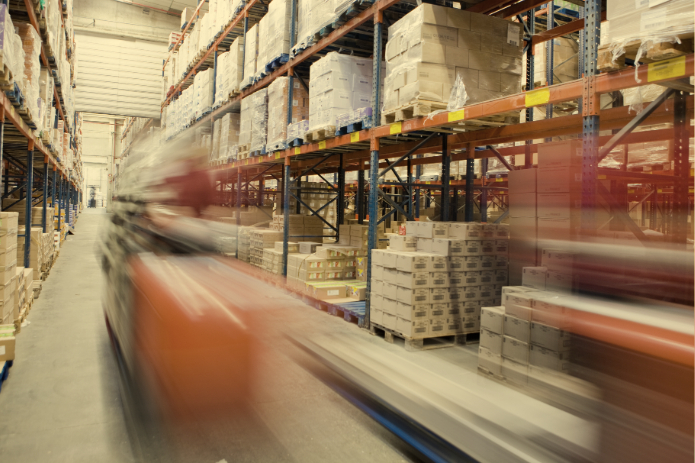Companies worldwide are closely watching the tense trade scenario that seems far from over, with the United States imposing tariffs of up to 145% on Chinese products, and China retaliating with equally high tariffs of 125% on American goods. In total, 180 countries are being impacted by the tariffs announced in early April by U.S. President Donald Trump. Brazil was not spared and was affected with tariffs of 10% in some sectors and 25% on national steel, one of the main materials the country exports to the Americans.
Even though Brazil received one of the lowest applied rates, the reaction in the production chain is real and impacts Brazilian logistics. In the automotive industry, for example, manufacturers like Stellantis, which owns brands such as Chrysler, Jeep, and Dodge, halted temporarily (until the end of April) the production lines of its factories in Mexico and Canada. The decision may also affect American plants that supply components to these units.
According to emergency logistics expert Marcelo Zeferino, CCO of Prestex, the truth is that the industry as a whole has raised the alarm on both ends: ‘On one side, the biggest partner for selling industrialized products from Brazil is the U.S., and with a 10% tariff, competitiveness may be lost. On the other side is Brazil’s biggest industrial competitor, China, which may divert its production to Brazil, intensifying competition in the domestic market,’ he explains.
According to the expert, in the middle of this ‘chessboard’ are the logistics operators that transport cargo, components, parts, machinery, grains, medicines, clothing, and consumer goods. ‘The real impact of this scenario will only be measured when prices stabilize. At this moment, uncertainty weakens the industry and harms the market, which doesn’t know whether to be more aggressive and stock up or wait, counting on a future tariff reduction,’ highlights the executive from Prestex.
But for Marcelo Zeferino, it’s important to see the glass half full and turn difficulty into opportunity. He points out that in the automotive sector, China does not have factories in Brazil, and the logistics of parts, components, machinery—the so-called spare parts (replacement parts management) logistics—will become highly relevant. ‘One thing is certain: inventory will be even more just in time, demanding more personalized and assertive logistics with high performance to ensure flexibility in service. Some American companies are even anticipating purchases of manufactured products from Brazil. Logistics operators prepared to meet emergency demands will come out ahead,’ emphasizes the CCO.
Specializing in B2B emergency logistics for 22 years in the market, Prestex serves all segments and closely monitors the movement of parts in this strategic chess game of industrial trade. ‘We already have aircraft on standby and predefined strategies to quickly meet company demands. The coming weeks will be decisive,’ he concludes.
Prestex’s bet on air transport is due to its speed, security, global coverage, possibility of alternative routes, and rigorous safety procedures, which minimize the risk of loss and damage. The executive notes that air transport’s share in national cargo transport still represents about 3%, while internationally it reaches 6%.
What is certain is that the logistics sector and delivery agility play a fundamental role in companies’ businesses and the country’s economic development, reflecting in the Gross Domestic Product (GDP) and job creation. According to the Brazilian Association of Logistics Operators (ABOL), the sector represents 1.8% of the national GDP and is responsible for 2.3% of the total employed workforce in the country.
The final analysis by Prestex’s executive is that the tariff surge presents both challenges and substantial opportunities for Brazilian logistics. ‘Strategic vision, combined with technology, flexibility, and the ability to adapt quickly, can elevate Brazil to a key role in global logistics, capturing the benefits of a changing economic environment,’ concludes Marcelo Zeferino.


